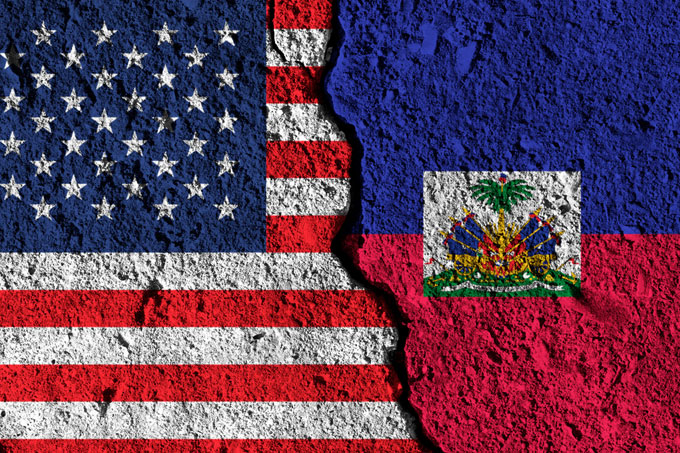Dr Michael Goodrum looks at how the history of Haiti still haunts America today.
As part of the current debates over American immigration policy, President Trump has allegedly questioned ‘why do we want people from Haiti here?’ This is a question that has haunted previous presidents; the very idea of Haiti has, in fact, haunted the American geopolitical imagination since the enslaved population of the French sugar island threw off colonial rule in 1804.
A free black republic so close to American territory raised the prospect of similar slave uprisings in the US. In 1822, this seemed to happen when the free African American, Denmark Vesey, was convicted of leading a slave revolt in South Carolina. At Vesey’s trial, it was made clear that he intended to lead those in his revolt to freedom in Haiti. This, coupled with the stories of French emigres from Saint-Domingue about black magic, placed Haiti at the centre of a virulently racist geopolitical discourse that marginalised it from global patterns of trade in which it had previously played a central role. Fear of emulation in the US and the imperial territories of other global powers set Haiti up to fail – and yet it persisted. As did American anxieties.
In 1915, Haiti was politically unstable. The US, concerned about German imperial ambitions in the Caribbean, potential threats to the Haitian American Sugar Company from anti-American political factions in Haiti, and the ability/desire of the Haitian government to repay American loans, occupied the island.
US troops remained until 1934. In the two decades of occupation, enforced labour was instituted and American racism was exported wholesale; Haitian resistance, in the form of the Caco Wars, was brutally suppressed. An investigation by the National Association for the Advancement of Colored People in 1920 strongly criticised the American intervention and its racist practices.
Racism was also evident in cultural responses to Haiti. Fears of voodoo had long cast a spell over white Americans, and Haiti played a central role; Haiti was also home to the zombie, popularised in the American consciousness through William B. Seabrook’s 1929 best-selling travelogue, The Magic Island, and then through the 1932 horror film, White Zombie.
Such horrifying tropes reinforced racist constructions of Haiti as a dark, threatening place. Further films throughout the 1930s and 1940s placed zombies and black magic in the Caribbean and as a very real threat to the US. Haiti and zombies are also frequent presences in horror comics of the 1950s, testifying to the longevity of racist rhetoric around the first black republic in the American geopolitical imagination.
Given President Trump’s remarks this week, it is clear that such notions are yet to be dispelled. A way forward might lie in the past, though. William Seabrook chose as the mantra for his account: “Protect me from misrepresenting these people, and give me the power to write honestly of their mysterious religion, for all living faiths are sacred.”
President Trump could definitely benefit from such advice.
Dr Michael Goodrum is Senior Lecturer in History in the School of Humanities.
 Expert comment
Expert comment Jeanette Earl
Jeanette Earl 2025
2025


